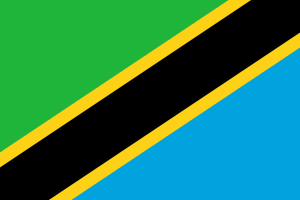Election Commission in Zanzibar Nullifies Results
The electoral commission of Zanzibar, a semi-autonomous archipelago in Tanzania, has declared the results of the Oct. 25 presidential election null and void, citing “violations of electoral law.”

The move has been heavily criticized by observers and members of the opposition alike. The American Embassy in Tanzania has called for the results to be reinstated, and Seif Sharif Hamad, the opposition Civic United Front’s (CUF) candidate for president, accused the election commission of acting unilaterally. International observers, however, found the election to have been largely “free and fair.”
The elections were held simultaneously with presidential elections in Tanzania at large, in which the ruling Party of the Revolution (CCM) and its candidate, John Magufuli, defeated an opposition coalition considered to represent the strongest challenge yet to the CCM’s 54-year rule.
While not completely independent, Zanzibar, which merged with mainland Tanzania in 1964, has its own president and legislature to ensure a degree of self-rule for the island group. However, the CCM has held the office of president without interruption since independence. In the past, elections have turned violent in Zanzibar, with the opposition accusing the CCM of using the government apparatus to quell support for the CUF, which advocates for greater autonomy for the archipelago.
Observers fear that this violence has returned. On Nov. 1, a series of small bombs were detonated in Stone Town, a popular tourist destination. No injuries were reported, but the United Kingdom, as well as several other countries, issued travel advisories to its citizens, warning against travel to Stone Town. Authorities arrested two suspects in connection with the bombings, yet they have not identified a clear link to the election results.
In the wake of reports of nightly disturbances and unrest, as well as beatings and intimidation attributed to Zanzibari security forces, the government has taken an active role in policing against further violence.
The election commission itself has denied all accusations of corruption, maintaining that ballot box fraud and physical altercations between election managers marred the results. It has scheduled new elections to take place in 90 days.
Nevertheless, international observers fear that “democracy, peace, and unity in Zanzibar are at stake” as a result of the nullification. Additionally, analysts question the legal validity of voiding the election results, citing the Tanzanian constitution’s requirement for a seven-member election commission to ratify all decisions. The decision to nullify last month’s vote was made unilaterally by two members, while the others were not present.
The events in Zanzibar could have effects on the mainland as well, where opposition candidate Edward Lowassa has not yet conceded and has accused the government of vote-rigging, demanding a recount. The objections raised by the CUF in Zanzibar could help Lowassa’s case, which some worry could lead to instability on the mainland as well.
One pressing question raised by the nullification has already been answered, however. Zanzibar’s incumbent CCM President Ali Mohamed Shein’s term, which was set to expire November 2, was extended until new elections could be held.
